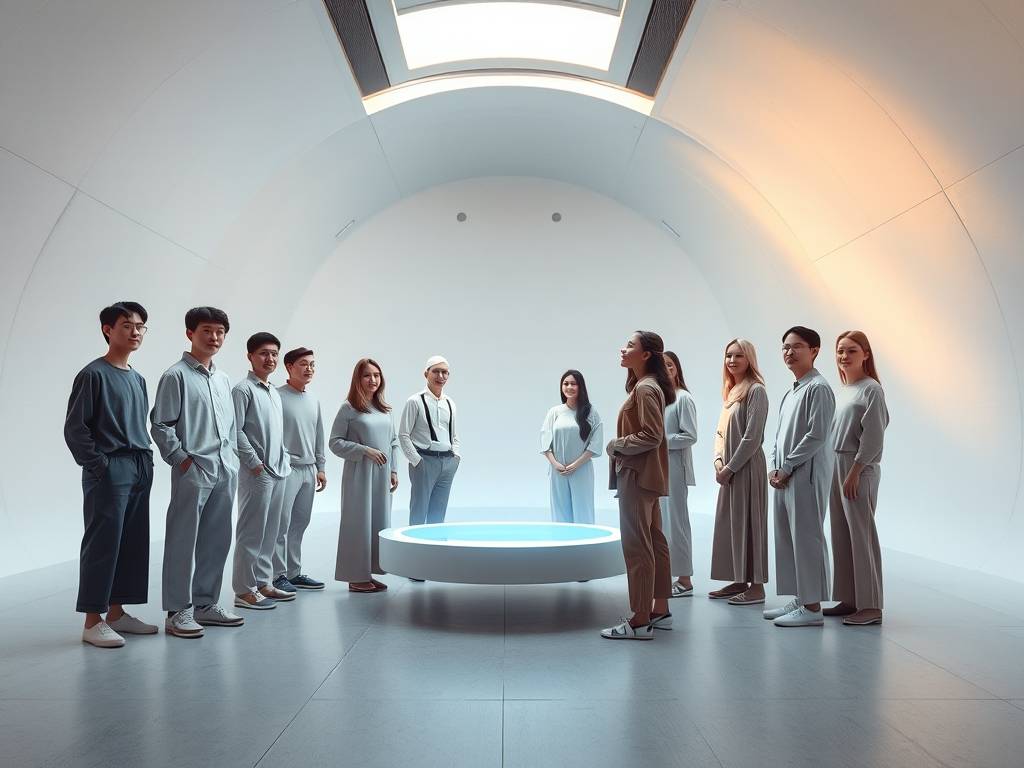The Humble Path: Inside the "Modest Missions" Expansion for Humility Simulator VR
In a digital landscape saturated with power fantasies and hyper-competitive shooters, Humility Simulator VR emerged as a quiet revolution. Its core premise—that profound, meaningful gameplay could be built around acts of selfless service and quiet observation—struck a chord with players seeking a more contemplative experience. Now, the experience deepens with the Modest Missions Expansion, a content pack that doesn't just add new tasks, but refines the very philosophy of the game, challenging players to find fulfillment not in victory, but in the act of giving without expectation.
The expansion’s genius lies in its subtle shift from structured chores to open-ended, empathetic interaction. The original game established routines: stocking shelves, tending a community garden, cleaning public spaces. The Modest Missions Expansion introduces a dynamic "Community Needs" system. Your VR headset now features a subtle, non-intrusive interface that highlights opportunities for kindness. A flicker of light on a park bench might indicate a lonely individual who would appreciate conversation; a faint, shimmering outline on a dropped item suggests you can return it to its owner. These aren’t quest markers with exclamation points; they are gentle nudges towards empathy, asking the player to notice, to pay attention, and to act.

One of the most lauded new modules is "The Listener's Path." In a small, sun-drenched park setting, the player’s role is simply to be present. You might sit on a bench next to an NPC (Non-Player Character) who begins to share a story—a memory of loss, a small daily triumph, a simple observation about the weather. There are no dialogue trees, no right or wrong responses. The game tracks your head movement and eye contact (via VR tracking), rewarding attentive listening not with points or trophies, but with the gradual unfurling of a more nuanced narrative. The reward is the human connection itself, a digital approximation of the warmth felt when truly being heard. It’s a powerful testament to the idea that presence is a gift.
Another standout mission type involves "Unseen Maintenance." These tasks involve caring for things that are meant to remain invisible. In one mission, you are tasked with cleaning the air filters in a beloved local library. The work is methodical and physical—you must unscrew panels, remove the filters, clean them with compressed air, and carefully reinstall them. No patron in the library will ever know you were there. Your accomplishment is the simple, silent knowledge that the air is a little cleaner, the books a little better preserved, and the environment a little healthier for everyone. The game reinforces this through subtle audio cues: the hum of the HVAC system becomes slightly quieter, the ambient sounds of the library a touch clearer.
The expansion also introduces a more nuanced relationship with the game's environment. Previously, cleaning a window resulted in a clear visual change. Now, in the "Restorative Rain" mission, you are tasked with collecting litter in a urban creek after a storm. The work is muddy and slow. The satisfaction comes not from a dramatic visual overhaul—the creek is still murky—but from knowing you've removed harmful plastics and debris, protecting the wildlife the player occasionally glimpses. A frog might splash nearby after you clear its bank, or a dragonfly might briefly land on your virtual hand. These are small, unscripted moments of feedback that highlight the impact of unglamorous, necessary work.
Beyond new missions, the expansion incorporates a "Reflective Journal" mechanic. At the end of each session, the player can choose to sit in a quiet space (a rooftop at sunset, a quiet dock) and simply reflect. The game replays moments from your playthrough—not cutscenes of action, but moments of connection: the smile of someone you helped, the peaceful silence of a maintained space. You can’t export these or share them on social media; they are purely for personal contemplation, reinforcing the game’s core tenet that the value of humility is internal.

Critically, the Modest Missions Expansion avoids the trap of becoming sanctimonious. It never preaches. Its lessons are baked into the interactive fabric of the experience. The VR medium is essential to this; the physicality of bending down to pull a weed, of making eye contact with a character, of feeling the haptic feedback of a scrubbed window, grounds these abstract concepts in tangible action. You don’t just think about humility; you perform it.
Humility Simulator VR: Modest Missions Expansion is more than just DLC. It is a thoughtful, expertly crafted argument for a different kind of game design. It posits that our virtual worlds need not be escapes from reality, but rather, training grounds for the best parts of it: empathy, service, and the quiet, powerful dignity of a job done well for its own sake. It doesn’t ask you to save the world; it asks you to take care of your small corner of it, and in doing so, offers a surprisingly profound and restorative experience.



















